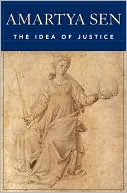Category Books
- Fiction Books & Literature
- Graphic Novels
- Horror
- Mystery & Crime
- Poetry
- Romance Books
- Science Fiction & Fantasy
- Thrillers
- Westerns
- Ages 0-2
- Ages 3-5
- Ages 6-8
- Ages 9-12
- Teens
- Children's Books
- African Americans
- Antiques & Collectibles
- Art, Architecture & Photography
- Bibles & Bible Studies
- Biography
- Business Books
- Christianity
- Computer Books & Technology Books
- Cookbooks, Food & Wine
- Crafts & Hobbies Books
- Education & Teaching
- Engineering
- Entertainment
- Foreign Languages
- Game Books
- Gay & Lesbian
- Health Books, Diet & Fitness Books
- History
- Home & Garden
- Humor Books
- Judaism & Judaica
- Law
- Medical Books
- New Age & Spirituality
- Nonfiction
- Parenting & Family
- Pets
- Philosophy
- Political Books & Current Events Books
- Psychology & Psychotherapy
- Reference
- Religion Books
- Science & Nature
- Self Improvement
- Sex & Relationships
- Social Sciences
- Sports & Adventure
- Study Guides & Test Prep
- Travel
- True Crime
- Weddings
- Women's Studies
The Idea of Justice »

Authors: Amartya Sen
ISBN-13: 9780674036130, ISBN-10: 0674036131
Format: Hardcover
Publisher: Harvard University Press
Date Published: September 2009
Edition: (Non-applicable)
Author Biography: Amartya Sen
Amartya Sen, winner of the 1998 Nobel Prize in Economics, is Lamont University Professor, Harvard University.
Book Synopsis
Social justice: an ideal, forever beyond our grasp; or one of many practical possibilities? More than a matter of intellectual discourse, the idea of justice plays a real role in how—and how well—people live. And in this book the distinguished scholar Amartya Sen offers a powerful critique of the theory of social justice that, in its grip on social and political thinking, has long left practical realities far behind.
The transcendental theory of justice, the subject of Sen’s analysis, flourished in the Enlightenment and has proponents among some of the most distinguished philosophers of our day; it is concerned with identifying perfectly just social arrangements, defining the nature of the perfectly just society. The approach Sen favors, on the other hand, focuses on the comparative judgments of what is “more” or “less” just, and on the comparative merits of the different societies that actually emerge from certain institutions and social interactions.
At the heart of Sen’s argument is a respect for reasoned differences in our understanding of what a “just society” really is. People of different persuasions—for example, utilitarians, economic egalitarians, labor right theorists, no-nonsense libertarians—might each reasonably see a clear and straightforward resolution to questions of justice; and yet, these clear and straightforward resolutions would be completely different. In light of this, Sen argues for a comparative perspective on justice that can guide us in the choice between alternatives that we inevitably face.
Paula Newberg - Globe and Mail
The Idea of Justice is...grand in the best sense of the word, taking on difficult subjects, and respectfully following centuries of philosophical debate while imaginatively rethinking them...[It] will undoubtedly set many future agendas for social research...The Idea of Justice marries economic and political analysis to moral reasoning, and this is among the most important elements of this volume...The Idea of Justice transcends political convention, expansively and elegantly. Read it front to back as a logical rethinking of classical political theory; read it back to front as an agenda of pressing, shared concerns. Either way, this is a volume worth its considerable weight and length. In an era typified by increasingly contentious politics, violent challenges to states and societies, and elusive (and often ignored) norms for global political engagement, The Idea of Justice is a call for civility in the best sense of the word, and a model of gracious intellectual engagement.
Table of Contents
- Preface
- Acknowledgements
- Introduction: An Approach to Justice
- Reason and Objectivity
- Rawls and Beyond
- Institutions and Persons
- Voice and Social Choice
- Impartiality and Objectivity
- Closed and Open Impartiality
- Position, Relevance and Illusion
- Rationality and Other People
- Plurality of Impartial Reasons
- Realizations, Consequences and Agency
- Lives, Freedoms and Capabilities
- Capabilities and Resources
- Happiness, Well-being and Capabilities
- Equality and Liberty
- Democracy as Public Reason
- The Practice of Democracy
- Human Rights and Global Imperatives
- Justice and the World
Part I: The Demands of Justice
Part II: Forms of Reasoning
Part III: The Materials of Justice
Part IV: Public Reasoning and Democracy
- Notes
- Name Index
- Subject Index
Subjects
 Ethics & Moral Philosophy
Ethics & Moral PhilosophyNonfiction
 Philosophy
Philosophy  Major Branches of Philosophical Study
Major Branches of Philosophical StudyPhilosophy
 Major Branches of Philosophical Study
Major Branches of Philosophical Study  Ethics & Moral Philosophy
Ethics & Moral PhilosophyPolitical Books & Current Events Books
 All Politics
All Politics  Public Affairs & Policies
Public Affairs & PoliciesNonfiction
 Politics & Current Affairs
Politics & Current Affairs  All Politics
All Politics
